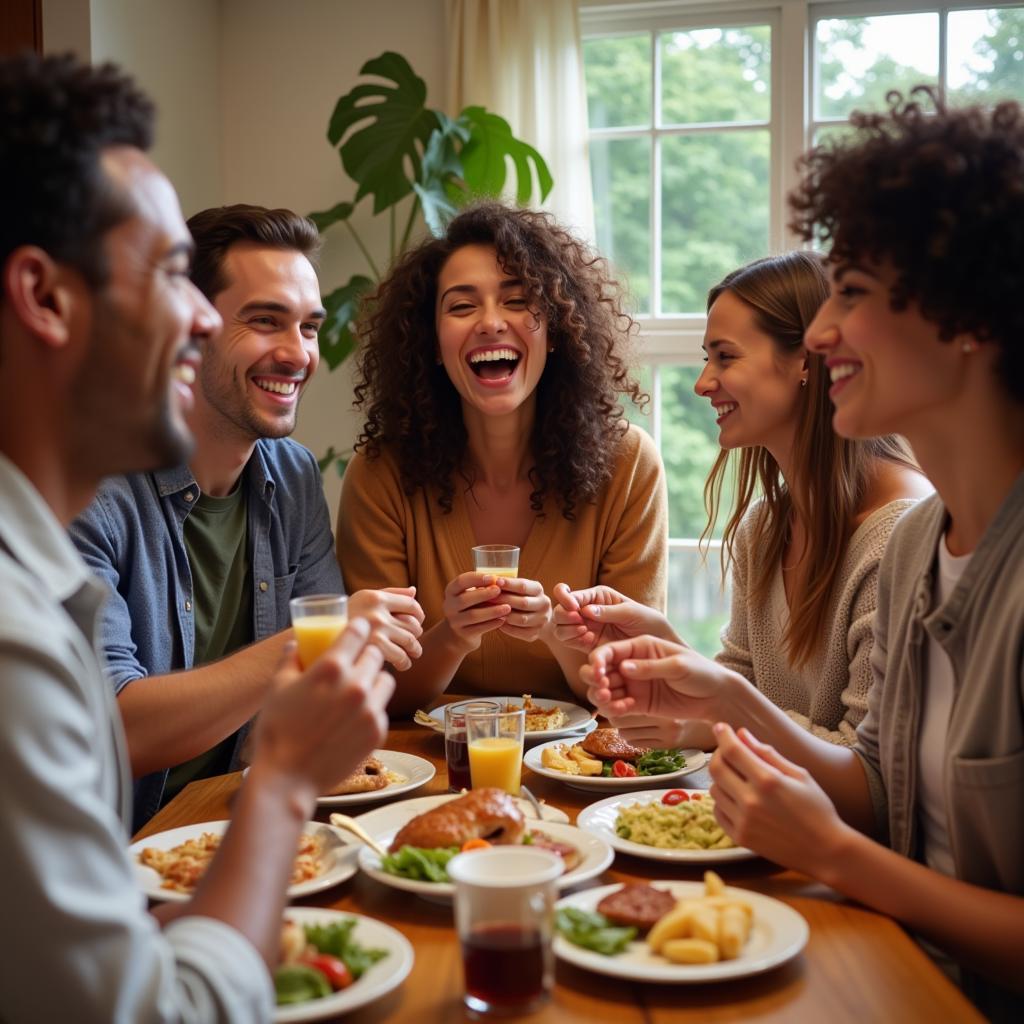We all have a complex relationship with food. It’s more than just fuel for our bodies; it’s intertwined with our emotions, memories, and cultural identities. However, sometimes this relationship becomes strained, leading to unhealthy eating habits, guilt, and even fear. This is where the journey of “Making Peace With Food” begins. It’s about rediscovering the joy of eating, nurturing your body with kindness, and finding a balance that nourishes your mind, body, and soul.
Understanding Your Relationship with Food
The first step towards making peace with food is to understand the dynamics of your own relationship with it. Are you constantly battling cravings and restrictions? Do you find yourself emotionally eating or using food as a reward or punishment?
Often, our relationship with food is shaped by external factors like societal pressures, diet culture, or even childhood experiences. Recognizing these influences can help you identify any negative patterns and begin to challenge them.
 Woman Journaling about her Relationship with Food
Woman Journaling about her Relationship with Food
Challenging the Diet Mentality
Diet culture is pervasive, bombarding us with messages about “good” and “bad” foods, ideal body types, and quick fixes. These messages can be incredibly damaging, leading to restrictive eating patterns, body image issues, and a constant cycle of yo-yo dieting.
Making peace with food requires rejecting the diet mentality. It means letting go of the pursuit of unrealistic beauty standards and embracing the unique beauty of your own body. Remember, food is not the enemy. It’s time to ditch the guilt and view food as a source of nourishment and enjoyment.
Practicing Intuitive Eating
One effective approach to making peace with food is by adopting the principles of intuitive eating. Developed by dietitians Evelyn Tribole and Elyse Resch, intuitive eating encourages you to tune into your body’s natural hunger and fullness cues.
Instead of following external rules and restrictions, intuitive eating empowers you to become the expert of your own body. It involves rejecting diet culture, honoring your hunger, making peace with food, challenging the food police, respecting your fullness, discovering the satisfaction factor, honoring your feelings without using food, respecting your body, and honoring your health.
 Friends Enjoying a Meal
Friends Enjoying a Meal
Embracing Body Positivity
Body positivity is an integral part of making peace with food. It involves accepting and appreciating your body at every size and stage of life. This doesn’t mean you have to love everything about your body, but it does mean treating it with respect and kindness.
When you feel good about your body, you’re less likely to engage in restrictive dieting or negative self-talk around food. Remember, your worth is not determined by your weight or dress size.
Seeking Professional Support
The journey of making peace with food can be challenging, and it’s okay to ask for help. If you’re struggling with disordered eating patterns, body image issues, or have a history of dieting, seeking professional support from a registered dietitian or therapist can be invaluable.
They can provide personalized guidance, support you in developing a healthier relationship with food, and help you navigate any underlying emotional or psychological factors contributing to your eating habits.
Conclusion
Making peace with food is a deeply personal journey that requires patience, self-compassion, and a willingness to challenge societal norms. It’s about shifting your focus from restriction to nourishment, from guilt to enjoyment, and from body shame to body acceptance.
Remember, food is meant to be enjoyed, not feared. It’s a source of nourishment, pleasure, and connection. By embracing the principles of intuitive eating, challenging the diet mentality, and practicing body positivity, you can cultivate a healthier, happier relationship with food and with yourself.
Do you have any other questions about making peace with food? You can find more information on our website:
- Food grade plastic bottles: Learn about safe food storage options.
- Dehydrated food emergency: Discover convenient and nutritious food choices for emergencies.
For further assistance, please contact us at Phone Number: 02437655121, Email: [email protected] or visit us at 3PGH+8R9, ĐT70A, thôn Trung, Bắc Từ Liêm, Hà Nội, Việt Nam. Our customer support team is available 24/7.